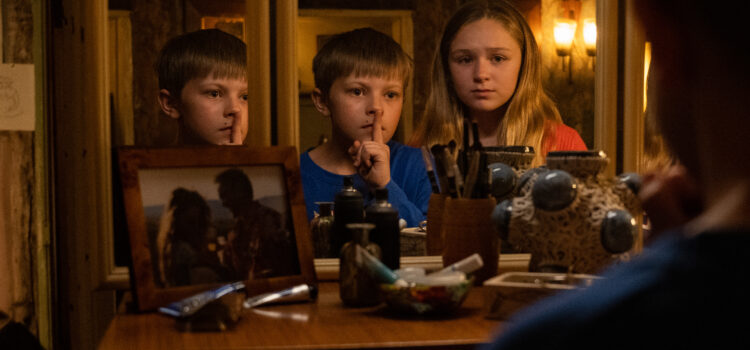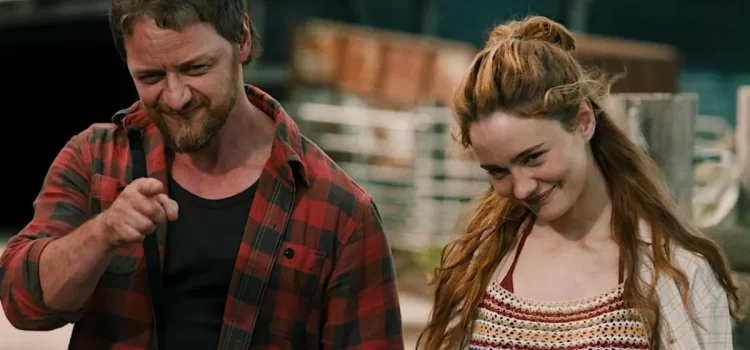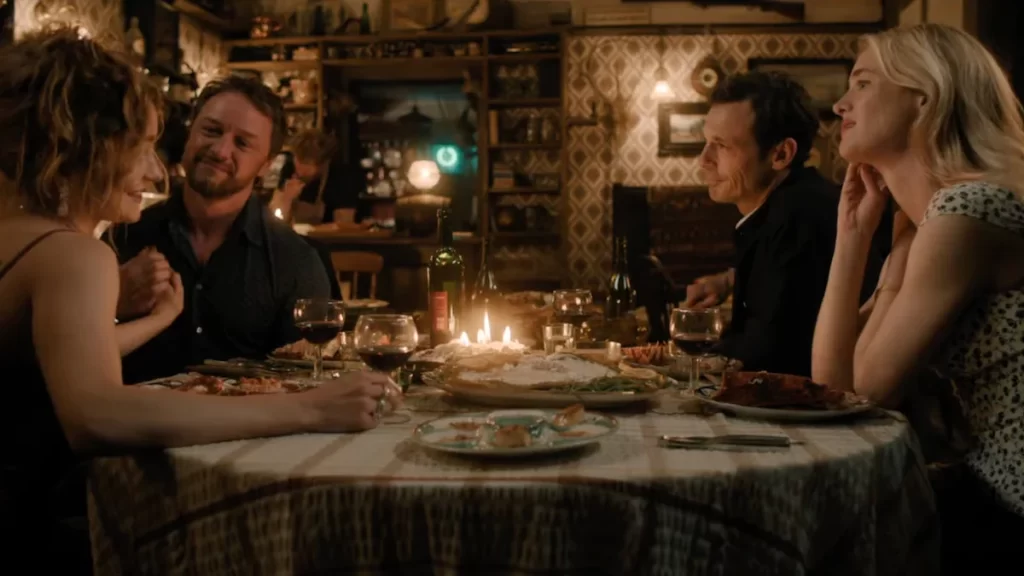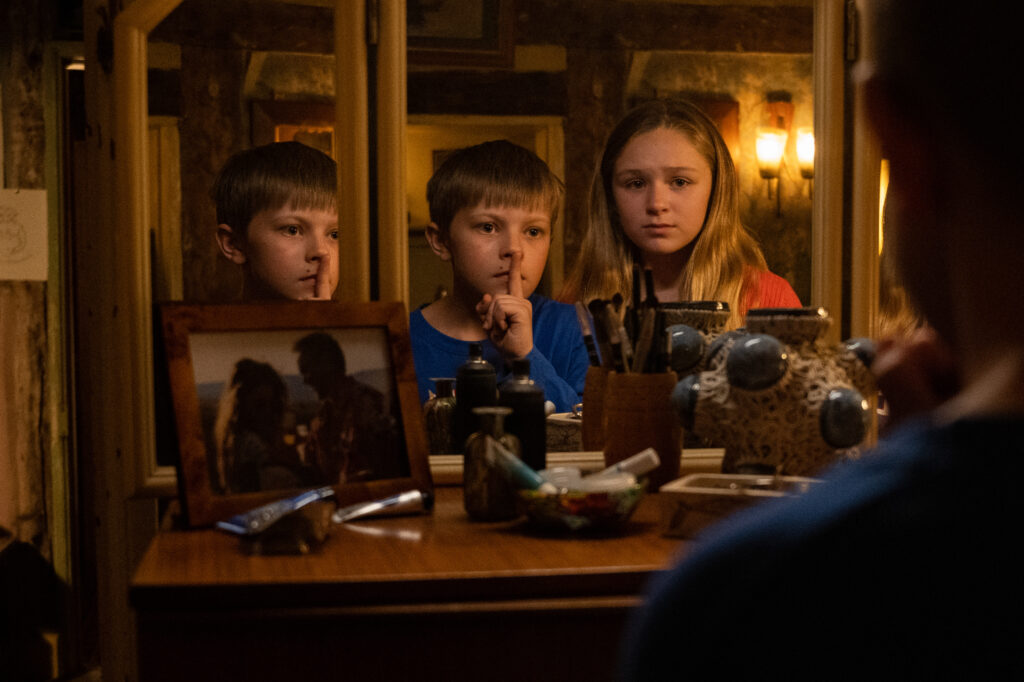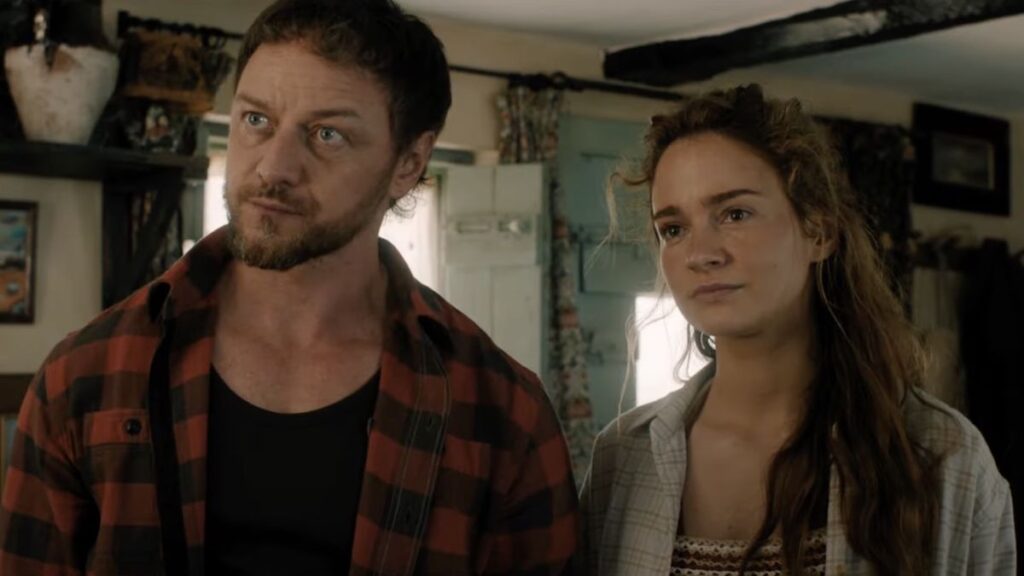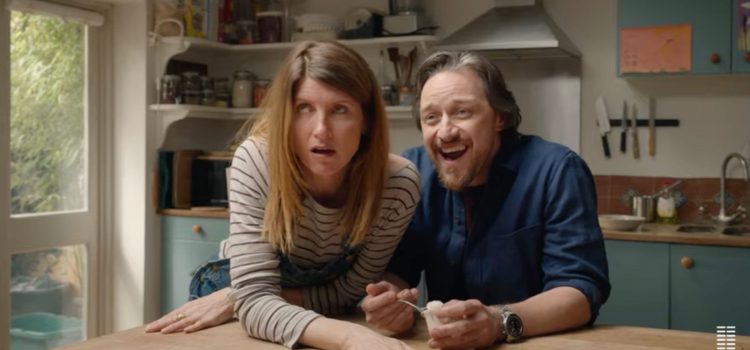By Alex McPherson
Crowd-pleasing but toothless, director James Watkins’ “Speak No Evil” mixes potent themes into a sanitized experience that, when it’s not doing a shabby copy-and-paste job of Christian Tafdrup’s 2022 original, turns its powerful setup into easily-digestible fodder for the masses.
For its first moments, Watkins’ film replicates Tafdrup’s shot-for-shot and line-for-line, albeit changing the nationalities of its central players. We follow Ben and Louise Dalton (Scoot McNairy and Mackenzie Davis), an American couple living in London who are vacationing in Italy with their middle-school-aged daughter, Agnes (Alix West Lefler), and Agnes’ stuffed animal rabbit, Hoppy.
Amidst their wealth and privilege, Ben and Louise have a troubled marriage as they deal with the fallout from Ben’s recent unemployment and a marital betrayal bubbling to the surface.
While relaxing at a pool, Ben and Louise are approached by the English Paddy (James McAvoy) and his wife Ciara (Aisling Franciosi) and they strike up a near-immediate friendship. Paddy is confident, charismatic, rowdy, and unafraid to make himself the center of attention.
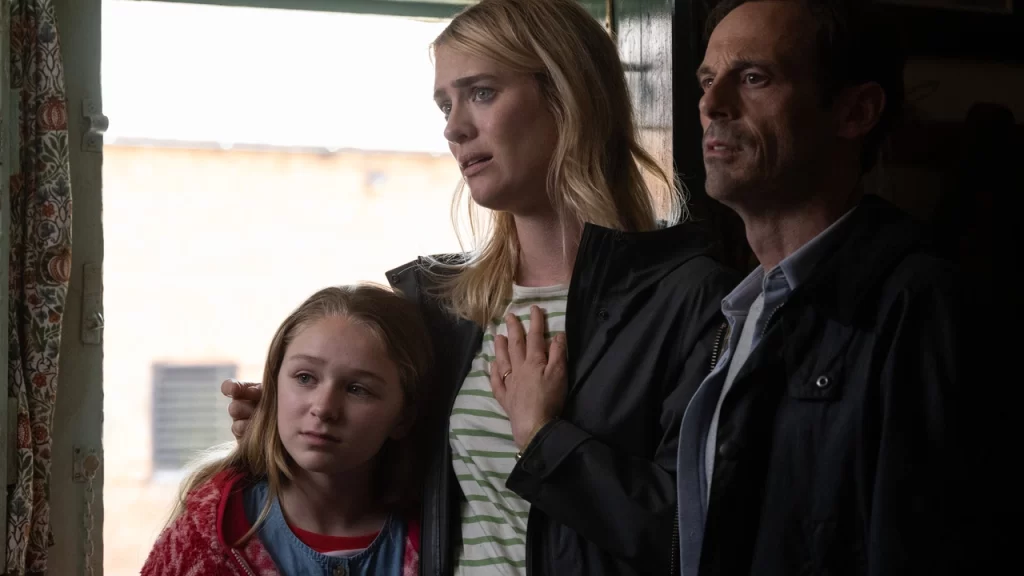
The Daltons (especially Ben) are pulled into his orbit, both by their own accord as well as by Paddy’s not-so-subtle pushiness that they just can’t say no to. Paddy and Ciara are accompanied by their son Ant (Dan Hough), who is around Agnes’ age and has difficulty speaking. This is explained away as “congenital aglossia” by Paddy, who claims to be a doctor.
Shortly after the trip ends and the Daltons are back in gloomy, rain-soaked London, where their upper-middle-class contentment frays at the seams, they get a letter from Paddy and Ciara inviting them to their remote farmhouse in the English countryside. Although Louise is skeptical, she begrudgingly agrees with Ben — who sees a form of “alpha male” masculinity in Paddy that he craves in his own life — that a change of scenery would be good for them as well as for Agnes.
Thus, against their better judgment and moviegoers yelling “No!” at the screen, the Daltons drive their Tesla to the in-your-face creepy house in the countryside. Everything is off from the get-go and proceeds to get worse: from Paddy and Ciara’s increasingly overstepping of boundaries (often of a sexual nature), to the concerning ways they treat Ant and Agnes, to the calm-and-collected explaining-away of any worries that the Daltons have about their vacation destination.
It’s just weird. And Ben and Louise — too uncomfortable and cowardly to stand up for themselves and what they believe in — are soon trapped in a hell of their own making.

Indeed, in its interrogation of social niceties, malaise, toxic masculinity, and inaction in the face of evil, Watkins’ “Speak No Evil” speaks to our current political climate.
The Daltons’ predicament is not completely implausible; they’re led away from their normal lives by the allure of the unfamiliar, not unlike the followers of a cult leader, falling victim to impulses that they’re unwilling or unable to counter with rational thought.
Unlike Tafdrup before him, though — who fully gives in to the nihilistic, misanthropic leanings of the premise— Watkins definitely pulls his punches this time around.
Not even an unhinged performance from McAvoy can save a film that’s seemingly scared of what its characters are capable, or incapable, of doing.
That’s not to say 2024’s “Speak No Evil” doesn’t have its merits. McAvoy slides comfortably into making viewers uncomfortable every step of the way. It’s not exactly a “novel” performance for McAvoy, who’s played similar characters in the past, but he’s chilling and (more so than his 2022 equivalent played by Fedja van Huêt) darkly funny — pushing the Daltons’ buttons with mischievous pleasure.
Paddy’s smile and frat boy-esque behavior belies a propensity to lash out if his authority and “control” is questioned. Franciosi is suitably creepy and off-kilter, although Watkins’ screenplay gives her a new backstory that robs Ciara of her chilling ambiguity.
McNairy definitely embodies Ben’s insecure, “beta male” attitude, but it’s occasionally difficult to discern between what is an intentionally awkward delivery and what is just plain awkward. He doesn’t get enough chances to show the fire burning beneath Ben’s eyes, making it difficult to buy Ben’s attraction to Paddy.

Davis fares marginally better, but, like the other characters, Watkins’ script doesn’t grant her much subtlety or ambiguity. Louise knows something’s very wrong from the outset, yet she remains hesitant to act on her beliefs out of guilt for her husband and a desire to keep the peace.
Hough shines brighter than McNairy and Davis as the damaged Ant. It’s too bad he’s forced into scenarios that, when they’re not outright copying what’s been done better before, turn Ant’s arc into a seen-it-before spectacle.
And this is emblematic of where 2024’s “Speak No Evil” falters more broadly. There’s a general lack of tension — the film’s editing is clunky and imprecise, only sometimes slowing down to let us get immersed in the at-times agonizing situations the characters find themselves in.
Gone from the new film is the memorably jarring score by Danny Bensi and Saunder Jurriaans, the no-holds-barred commitment to the bit, and the heartbreaking sensation of watching an inevitable catastrophe.
Instead, by the time the third act rolls around, 2024’s “Speak No Evil” slides into derivative territory that leaves us cheering instead of disturbed, swapping poignancy for “fun” that is just that: disposable and disappointingly safe.
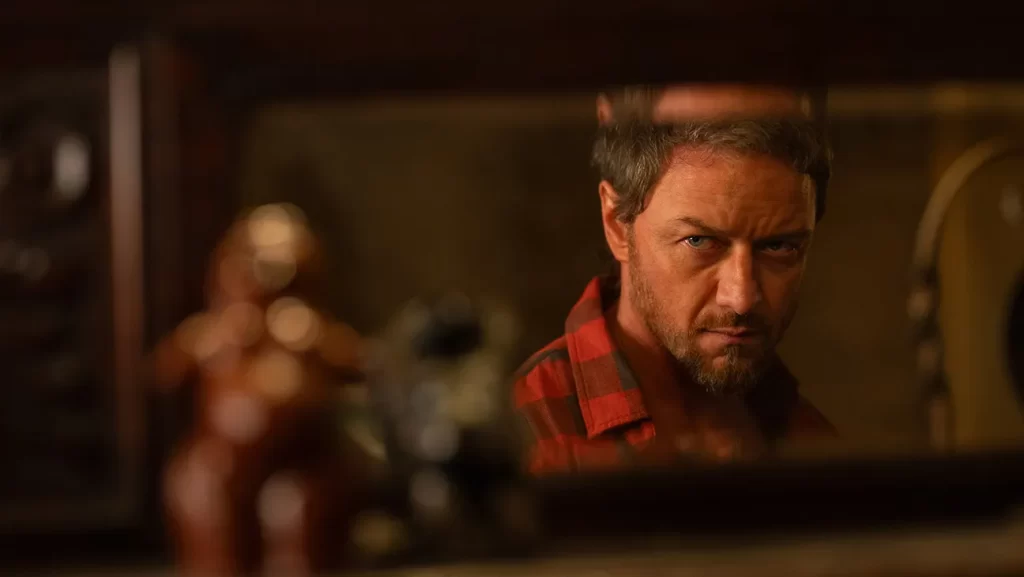
It is, admittedly, amusing to experience in a crowded theater, where everyone can have a ball watching the film turn into a haunted house of cathartic set-pieces and slapstick violence. Watkins gives these characters far more agency than Tafdrup does.
Still, by altering the trajectory of their story so drastically, Watkins tones down the ballsiness that made Tafdrup’s telling memorable, almost rendering it a parody of what’s come before.
“Speak No Evil” ultimately doesn’t have much faith in viewers’ attention or ability to embrace the unexpected. It’s a frustrating, if campily enjoyable, remake that never quite proves its worth.
“Speak No Evil” is a 2024 horror-comedy written and directed by James Watkins and starring James McAvoy, Aisling Franciosi, Scoot McNairy, Mackenzie Davis, Alix West Lefler and Dan Hough. It is rated R for some strong violence, language, some sexual content and brief drug use, and its runtime is 1 hour, 50 minutes. It opens in theatres Sept. 13. Alex’s Grade: C.
Alex McPherson is an unabashed pop culture nerd and a member of the St. Louis Film Critics Association.

